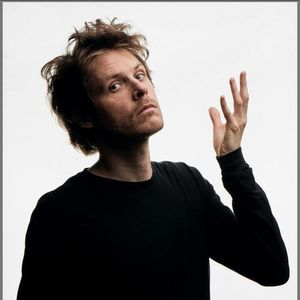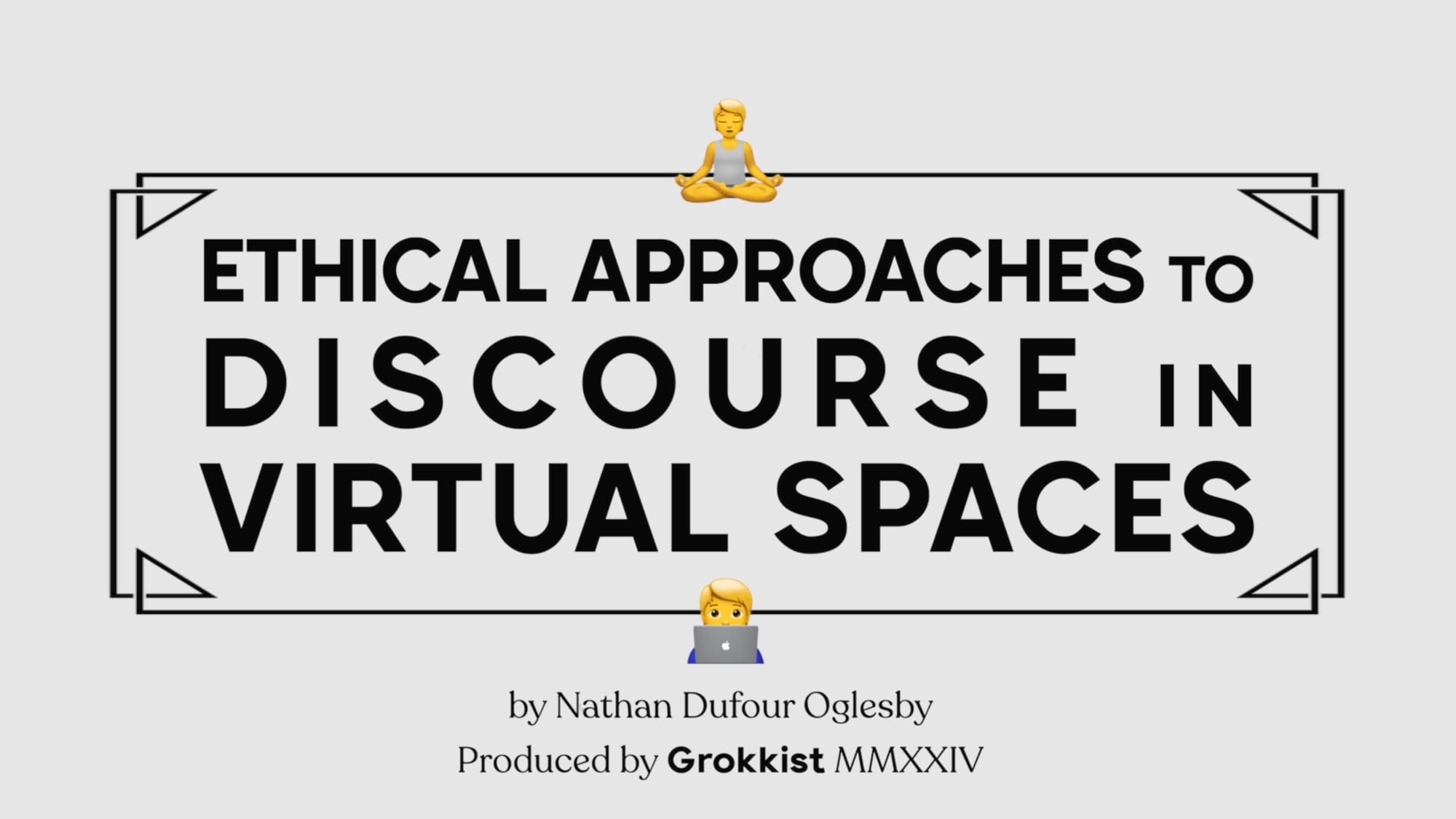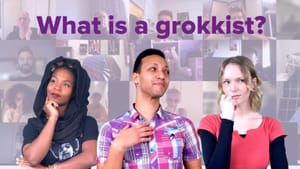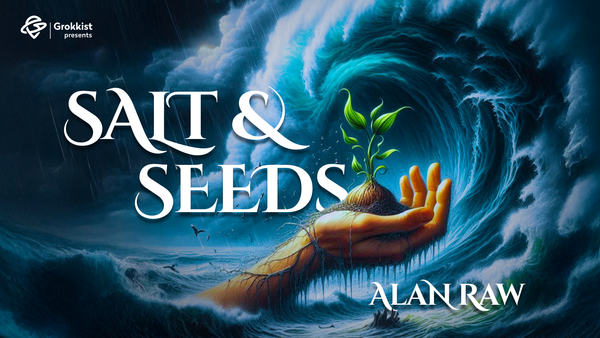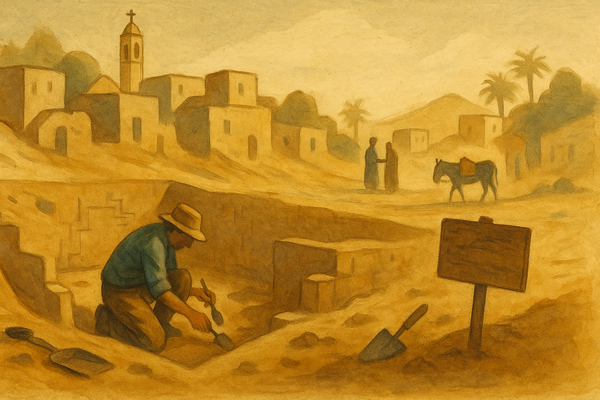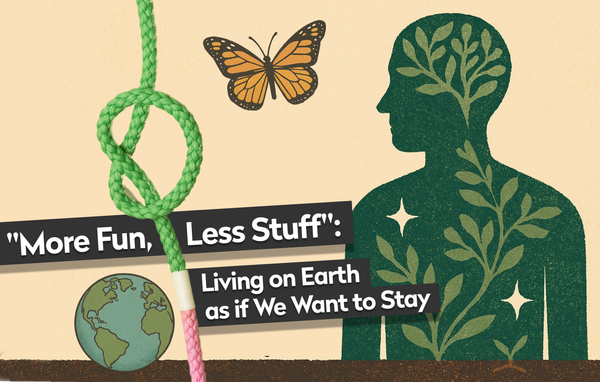Watch the video essay (13 min)
Can we cultivate an online culture of curiosity and care?
How do we create healthy conditions of discourse in an increasingly polarized, and ideologically volatile world?
Have you been in any conversations recently where the very mention of a certain word or phrase, or current event, causes such immediate division and opposition that it becomes impossible to even communicate, impossible to understand the other person or be understood by them?
Do you frequently feel personally triggered, or unable to control your responses to things — or feel that there are certain things you can’t even articulate without triggering others, simply by bringing them up?
Do you frequently feel there are certain things you can’t even articulate without triggering others, simply by bringing them up?
What would it be like to converse in a way where it’s safe and fruitful to truly question one another’s assumptions, and our own, without making one another feel destabilized and attacked?
The performance of social identity in virtual spaces
Such questions are especially pertinent to our virtual spaces, where the way we display ourselves and put ourselves forward is mediated by our screens, and diffused throughout the general informational intensity of the digital age. I can choose to be anyone here on the internet; though I often find myself choosing to be the side of myself that is psychologically reinforced by the algorithms and discourse conditions which partially determine my behavior, my identity, my philosophy, and my political affiliation.
But the way we treat one another in our virtual spaces does end up affecting the way we treat one another in the so-called “real world” — though in the first place, all of it, even the internet, is in fact real — all of it is human action and interaction, all of it involves the encounter with the other in the present moment, where we meet one another and change one another in the act of meeting.
Virtual spaces have the capability of providing a unique venue for transformative exchange. They are spaces where, by creating a totally new and in some ways neutral context, plucked out of the immediate materiality that presses upon us as finite physical beings, we can meet one another in the dialectical dance of our separate-togetherness, like quantum particles interacting at a distance.
They can be “third spaces” — a term coined by the sociologist Ray Oldenberg — places of meeting that are neither Home, nor Work, but a third thing, a space of free and non-obligational conversation and community.
Social media and the closing of virtual space
Nevertheless, many of the virtual spaces I move in have felt increasingly less amenable to this ideal. Social media feeds become echo chambers where one’s own opinions and fears are reinforced and commodified. There are Discords, Reddits and other online communities, but they are often rooted in fixed identities or political positions; it's precisely this fixity that gives them their popularity. They are places that are only safe only insofar as you’re there to reinforce the identity masks that have become acceptable for your brand, your audience, your ideologically congealed, algorithmically agglomerated virtual identity pocket (TM).
Social media feeds become echo chambers where one’s own opinions and fears are reinforced and commodified.
They are places that are only safe only insofar as you’re there to reinforce the identity masks that have become acceptable for your virtual identity pocket.
And this very feature of online discourse sometimes spills over into the meatspace lifeworld — I feel the performative constrictions of identity, ideology and politics ever more acutely in my in-person conversations.
This is one of the reasons I’ve been collaborating on creating an alternative space for online discourse, an online learning community called Grokkist.
One of the goals for this space is to offer precisely the kind of open exchange described above: a place about which one could truly say, “You don’t have to have any specific beliefs to be here” — as recently described by one of its members. The idea is to cultivate true diversity of perspective, since the community is rooted not in a common dogma, but a common mode of being — a mode that we often summarize at Grokkist with the words Curiosity and Care.
Ethics of care
We consider these modes fundamental, because beyond and before Identity and Ideology, the most important thing is the immediate encounter between Oneself, and the Other — the fundamental relational moment that is the source of all experience, and all ethics.
What does that mean in plainer terms? It means be kind and present with one another — no matter who the other is, or how much you disagree.
And so the rules of the space are not reducible to a list of DO’s and DON’TS — DO wait your turn to speak, DON’T use this or that word — rather, those rules emerge as tendencies or patterns, the organic outgrowth of a culture of care.
Some call this the “ethics of care,” a term coined by ethicist and psychologist Carol Gilligan.
Ethics is not about some great big Right or Wrong written in the sky: it’s always situational, and conversational, and embedded in a context — and the mutual responsibility we have to one another simply by being in conversation right now.
It’s a matter of the recognition of the other as an end in themselves, a whole mass of contingencies and contradictions and contexts that makes them who they are, a living person, rather than a mere avatar for a certain belief.
Ethics is not about some great big Right or Wrong written in the sky: it’s always situational, and conversational, and embedded in a context.
It’s a matter of the recognition of the other as an end in themselves, a living person, rather than a mere avatar for a certain belief.
Okay, that’s well and good. What does this mean for an actual conversation involving a controversial issue?
Example: 'Meat is Murder'
Take for instance veganism or vegetarianism — this is something that comes up in our course about the philosophy of ecology.
Consider the slogan “Meat is Murder”.
As a vegetarian, I might hold that statement to be true; my conviction of its truth may in fact be the foundation of my vegetarianism.
Can I can hold that conviction, and even voice it, and still be in dialogue with someone who is eating a burger in the very moment of our conversation — someone who is, by virtue of that act, is consenting to murder?
Yes.
Is that in some way contradictory?
Yes.
But the contradictory nature of that moment is secondary to the mutual care implicit in our interaction as two human beings.
In order to actually get into the philosophical weeds of whether or not it’s right to eat meat, we have to be able to sincerely raise the question about whether or why it’s wrong, without accusing one another in doing so.
If we can’t strike that tonal balance, then the conversation is lost. Emotional vibration is truly more important than conceptual agreement, because shared vibration is experientially prior to shared opinion.
But if those emotional considerations seem too wishy-washy and vague, we can also look at the matter more analytically.
We can say that if we disagree, we can analyze whether our disagreement is on the level of interpretation, or of policy or of value — and based on this we can find coherence, even if we don’t find agreement.
We may discover that we share the same values, but have different interpretations as to what those values mean in a given situation. We may agree on the value statement “we shouldn’t be cruel to animals”, but in your interpretation that may include the possibility of non-cruel butchering, whereas I might consider all butchering to be inherently cruel.
Or, we may agree on our values and our interpretation of them, but have different views about what action should be taken based on that — we may both wish for a cruelty-free and butchery-free world, but one of us may feel that other concerns, such as nutrition, take precedence over that ideal at the present time.
Then again we may have true disagreements of values — where we don’t agree on fundamental matters of judgement. I think X about the nature of reality, you think Y, and these opinions are inherently contradictory. But: if we can see that disagreement and talk about it, we can at least understand one another better — and the channel of discourse remains open.
Related to this, another helpful principle for this space is to make no assumptions about the validity of even our own opinions. In this attitude of exploratory tentativeness, one is less likely to revert to political slogans of declarative certainty — slogans like “Meat is Murder” — even if one sympathizes with the cause they promote.
Because provocative propaganda, even when it’s for a cause you truly think is right — is still just that — provocative propaganda — and the greater cause beyond it, that of general well-being, may ultimately be better served by being attentive to how you say the truths you say, and acknowledging the contingent nature of your own truths.
The category of the political
The truly political space is not one that is characterized by belonging to one or another political party, but by being a space that we both enter sharing only two assumptions — the assumption that we both want to be here, and that we fundamentally care for one another in a way that transcends our differences.
This is exactly the ideal that liberal democracy is supposed to offer — the opportunity for all of us to get along even if we completely disagree, united by the common desire to be able to disagree and still get along.
Unfortunately, liberal democracy has managed to screw this up on a dazzling scale — perhaps because it has often failed to open that space to everyone equally, and because it has built its whole edifice on the destruction of those that it leaves outside its circle of care. But that’s another story.
The truly political, if we go back before its modern connotations, is literally that which pertain to the polis, the Greek word often translated as “city-state”. In its broader sense, the polis means the whole communal enterprise of human life, the community itself as a collective of individuals that is greater than the sum of its parts.
So even if I’m saying Fuck the Police, I’m not saying Fuck the Polis — in fact I may be saying the former precisely because I truly care about the latter — but in turn, if I do truly care about the Polis, then I also care about the people who comprise the Police, since they’re a part of it.
Even if I’m saying 'Fuck the Police', I’m not saying 'Fuck the Polis' — in fact I may be saying the former precisely because I truly care about the latter.
But in turn, if I do truly care about the Polis, then I also care about the people who comprise the Police, since they’re a part of it.
And so, if I’m trying to have an actual conversation, I might not want to say “Fuck” anyone or anything at all.
Then again, sometimes maybe I will. It’s situational, not absolute.
The principle of locality
Because of this, it may be that this ideal form of political relating happens best in relatively small spaces, where you can actually know the person you’re disagreeing with. If the center of discourse ethics is not rules but personal care, then it comes down to really knowing people, not just recognizing their handles and associating them with certain kinds of content.
There’s also something inherently ecological about this — thinking globally is a matter of acting locally. “Local” doesn’t only mean the person who lives in your neighborhood; it can also apply to intentional community spaces you cultivate online.
I realize that what I’m saying may sound in some ways naively idealist, and in other ways unfashionably “centrist”. Why should I bother cultivating curiosity and care, when the world is afire with destruction and greed, and there’s no time for anything but radical action? How have liberation and change ever come about without being willing to be radically confrontational?
There is no absolute answer to this — even radical action is situational and contextually contingent.
What is true radicality?
Radicalism is increasingly valorized in our culture, because being radically for or against something is very clear, and what’s clear is easy to package, and what’s easy to package is easy to sell.
But I would venture that what’s truly radical is a kind of moderation — not moderation in the sense of patient complacency, but in the sense of being able to moderate oneself in order to participate in discourse with genuine care for others.
To be radical literally means to be “at the root” — and the root of our experience is not political ideology but relationality -- the sharing of space is what creates space itself.
To be radical literally means to be “at the root” — and the root of our experience is not political ideology but relationality — the sharing of space is what creates space itself.
We are the world because we make the world; we are matter because of the way we do our mattering.
This is not only the case ethically, it’s the case metaphysically — time-space is not an empty field, a blank slate in which objects reside, but a matrix of spatiotemporal conditions that proceed from the interrelations of actual entities.
We are the world because we make the world; we are matter because of the way we do our mattering.
Matter freely. Take back the power. Our feelings of oversensitivity, our tendencies to reactionism are not absolute — they are contingent on the conditions of discourse that we cultivate. We can’t singlehandedly control the conditions of every space, physical or virtual — but we do alter and transform every space we’re a part of.
Equip yourself with the will to be a critical, kind person, whose sense of belonging and community is not rooted in imposed identities and unexamined assumptions, but in the radical act of being present with one another.

